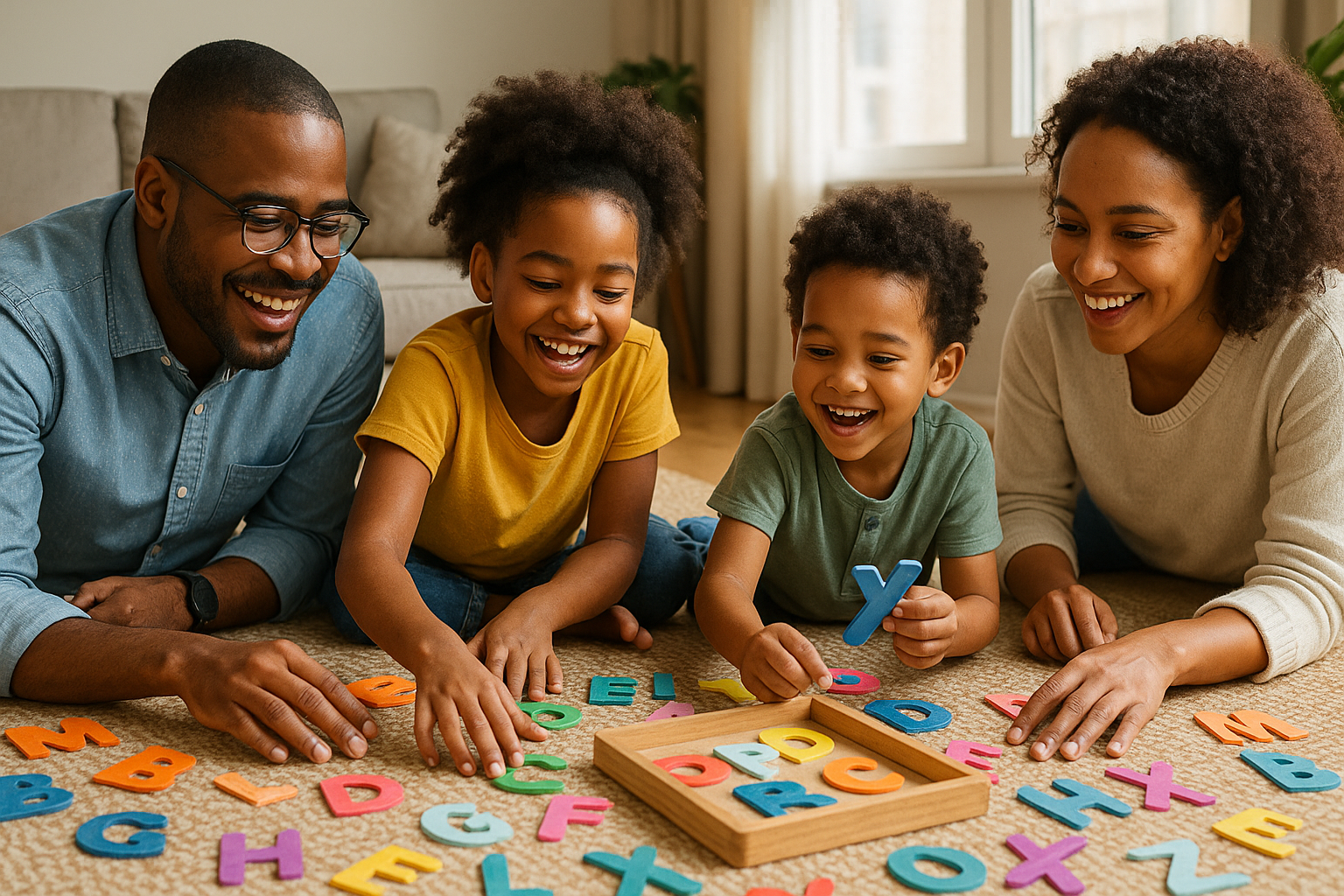Learning doesn’t have to be boring — and it definitely doesn’t have to happen only in a classroom. Educational games are one of the most effective ways to teach children important skills while keeping them engaged, curious, and having fun. Whether you’re indoors on a rainy day or just looking for screen-free activities, there are plenty of creative ways to turn playtime into a learning opportunity.
In this article, we’ll explore 10 educational games you can play at home that promote learning, bonding, and lots of laughter.
1. Alphabet Treasure Hunt (Ages 3–6)
Skills developed: Letter recognition, early literacy, memory
How to play:
- Choose a letter (e.g., “B”).
- Ask your child to find objects around the house that start with that letter (e.g., book, banana, blanket).
- For older kids, create a checklist and race the clock!
Why it works: It blends movement, thinking, and language in one fun activity.
2. Math Bingo (Ages 5–10)
Skills developed: Addition, subtraction, multiplication
How to play:
- Create bingo cards with math equations instead of numbers.
- Call out the answer (e.g., “8”), and kids must solve and find the matching equation (e.g., “4+4”).
Why it works: It turns basic math drills into an exciting challenge.
3. Story Cubes (Ages 4–12)
Skills developed: Creativity, language, storytelling
How to play:
- Create or use a set of dice with pictures or words on each side.
- Roll 3–5 dice and ask your child to create a story using all the images.
Bonus: Let kids draw their own cubes or take turns telling stories together.
4. Kitchen Science Experiments (Ages 5+)
Skills developed: Observation, cause and effect, basic science
Examples:
- Vinegar + baking soda = bubbly reaction
- Water + food coloring + oil = lava lamp effect
Why it works: These hands-on activities teach scientific thinking and vocabulary in a memorable way.
5. Guess the Sound (Ages 3–7)
Skills developed: Listening, sound recognition, attention
How to play:
- Blindfold your child and make different household sounds (e.g., keys jingling, water pouring).
- Ask them to guess what made each sound.
Variation: Let your child create the sounds and have you guess.
6. Build a City (Ages 4–10)
Skills developed: Spatial reasoning, planning, fine motor skills
Materials: Building blocks, cardboard boxes, paper and crayons
Activity:
- Create roads, buildings, and parks.
- Add signs, traffic lights, and characters.
Why it works: It encourages problem-solving and creativity through constructive play.
7. Spelling Relay (Ages 6–12)
Skills developed: Spelling, teamwork, movement
How to play:
- Write letters on pieces of paper and spread them across the room.
- Call out a word, and your child runs to collect the letters in the right order.
Bonus: Use a timer or turn it into a race for more excitement.
8. Money Market (Ages 5–10)
Skills developed: Math, decision-making, real-world skills
How to play:
- Create a pretend store with prices.
- Give your child play money and let them shop for items.
- Encourage them to count change and budget.
Why it works: It builds math confidence and financial awareness in a playful way.
9. Word Scavenger Hunt (Ages 6–12)
Skills developed: Reading comprehension, vocabulary
How to play:
- Create clues using short sentences (e.g., “Find something that rhymes with ‘chair’”).
- Hide cards or items around the house for them to find based on the clues.
Variation: For younger kids, use pictures instead of written words.
10. Emotion Charades (Ages 4–10)
Skills developed: Emotional intelligence, empathy, communication
How to play:
- Write down emotions on slips of paper (happy, frustrated, excited, nervous).
- Take turns acting them out while others guess.
Why it works: It builds self-awareness and empathy in a silly, supportive way.
Learning Through Laughter and Play
Children are natural learners — especially when they’re having fun. Educational games help reinforce important academic and life skills without the pressure of formal learning. Even better, these activities strengthen your connection as a family while encouraging curiosity, critical thinking, and creativity.
Next time you’re looking for something fun to do at home, try one of these games — and enjoy turning your living room into a joyful learning zone.
